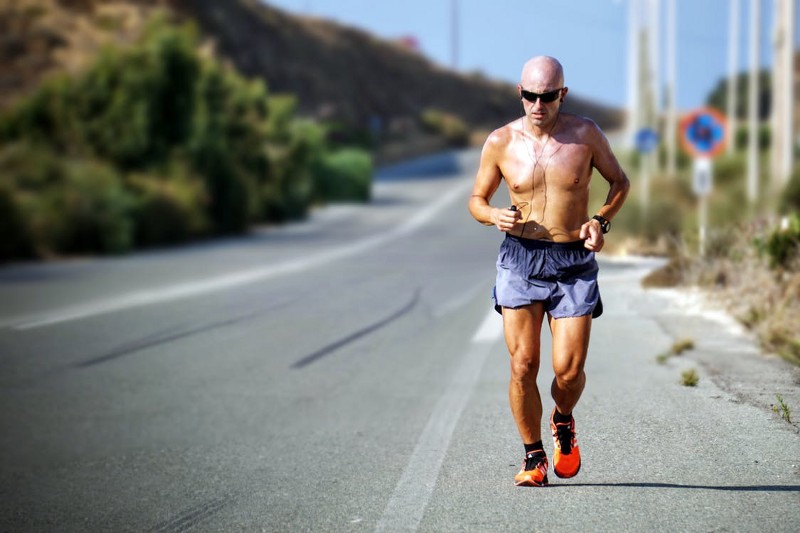For someone wanting to cut back on their drinking, getting into healthier lifestyle habits can be an effective way to replace habits and change their relationship with alcohol.
People often have the tendency to replace one bad habit with another, like giving up smoking and binge eating sugary food. Whether it be exercise, art and creative therapies, picking up a new hobby or practising meditation, the replacement suggestions below are an important step in changing old habits and replacing your drink with something better for your mental and physical state.
When you start to develop new habits, passions and hobbies, you start to create new goals for yourself and the determination to improve in these areas can be a great distraction from drinking. You won’t want to drink on a Saturday night if you have an art course with a highly regarded teacher, or the waves are forecast to be clean and offshore the next day!
Replace habits by getting active

Alcohol releases a chemical in our brains called dopamine, the reason why you feel pretty good when you first start drinking. The great news is that exercise also releases these feel-good chemicals and endorphins into your body, so you don’t have to drink to get this effect! Plus, you can’t get a hangover from a jog or boot camp. As well as helping to replace habits, exercise works as a great stress relief, boosts your mood and helps you sleep better.
Getting active does not have to be all about spending a day in a stuffy, sweaty and uninspiring gym. There are so many activities you can try to see what you enjoy the most, whether that be:
- Cycling
- Personal training
- Group fitness classes
- Outdoor meetups, like sailing or kayaking
- Running/ running groups
- F45, aerobics, spin classes, or cross fit
- Boxing or martial arts
- Triathlons or marathons
- Ocean swimming
As long as your chosen activity gets the blood pumping and the mind present, you’re on the right track!
Try meditation
While sitting in on an Alcoholics Anonymous meeting recently, I heard people talk about their progress or their relapses and what really struck me was that over 50% of the people in the meeting spoke about how they deal with their anxiety or frustration by meditating.
Meditation does not have to be bound by any ‘right’ way or technique. Sometimes just sitting still and breathing can actually increase the feeling of heaviness and depression, or sitting still is not physically possible because of anxiety. Luckily, there are different techniques of moving meditation that helps move these negative energies around the body instead of sitting still. If you’re in this frame of mind, moving that energy around and out of the body can be the most effective. Some of these techniques include ancient mindfulness practices like Tai Chi, Qigong, Yoga Asana, Kundalini, and Aikido. There are also group meditations, guided meditations, apps, books, workshops and endless resources to help get you started and replace habits.
“It’s helped me find my centre, helped me tone down and control my reactiveness, rebuilt the part of my brain that was affected by alcohol and pot and food addiction, given me control over my negative mind, pulled me out of depression again and again, allowed me to connect to that greater thing outside of me (or inside of me — however you want to look at it), and more than anything, become the number one coping mechanism in my life — for stress, anxiety, anger, blues, bitchiness — it fixes everything.”— Hip Sobriety
Be creative

Art therapy is a type of treatment that guides people to use the creative part of their brain and express their emotions through creation to replace habits. Art therapy has been proven to boost self-esteem and confidence, reduce stress and anxiety, and stimulate different experiences and feelings by encouraging people to use their hands, paint and other mediums.
The Professional Association for Arts Therapy Australia says art can be an outlet for some and can encourage people to:
- Express feelings that may be difficult to verbalise
- Explore their imagination and creativity
- Develop healthy coping skills and focus
- Improve self-esteem and confidence
- Identify and clarify issues and concerns
- Increase communication skills
- Share in a safe, nurturing environment
- Improve motor skills and physical coordination
- Identify blocks to emotional expression and personal growth.
Gardening and horticulture therapy
Gardening and horticulture therapy are often promoted as a tool to help people get outside and boost general wellbeing. Horticulture therapy is now practised in prisons, psychiatric hospitals, mental health programs and addiction rehab to replace habits. As it is also a caregiving type of role, gardening can often provide a sense of purpose and structure.
Research has shown that gardening can reduce aggression, anxiety, depression and improve concentration and even self-esteem. Getting into projects like creating a vegetable garden can be a great way to feel motivated to work outside, and often you will find that time just flows by when you stop to smell (and plant), the flowers.
Hobbies
Despite what people may think, you’re never too old to take up a new hobby. The best part about taking up a hobby is that it is something you are choosing to do because you enjoy doing it, and you don’t need anyone else to be involved, or even like it! To list all potential hobbies that you can explore would take up pages and pages of this blog, so here are just a few hobbies the team at Hello Sunday Morning are into:
- Surfing
- Hiking
- Dragon boating
- Dancing- salsa, ballroom, No Lights No Lycra
- Computer games
- Drawing
- Cooking
Collecting art
For a heavy drinker to replace habits, these alternative therapies should be used in conjunction with talking to your GP, psychologist, and a consistent support platform such as the Daybreak program and community.

One Comment
Add a commentI’d put yoga on the top of the list – 30 minutes in the morning – free videos for all age groups on YouTube – yoga really helps to center your whole body